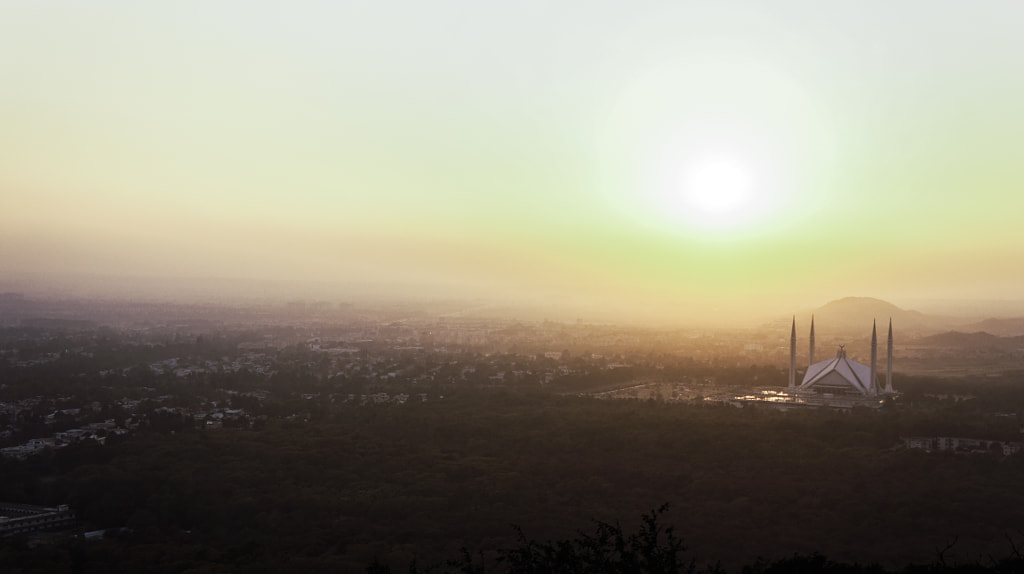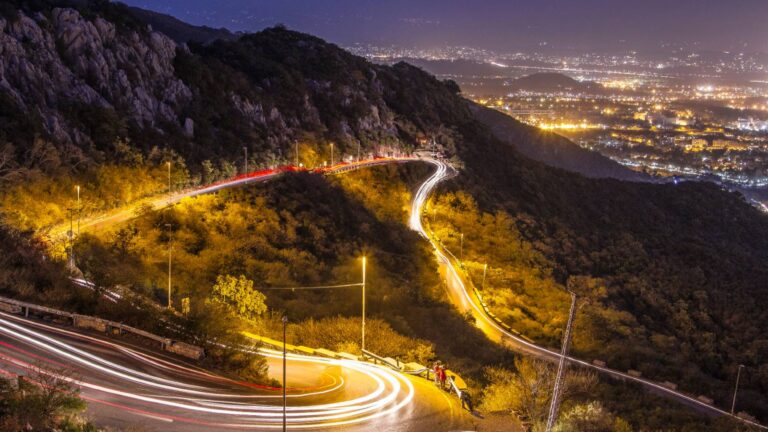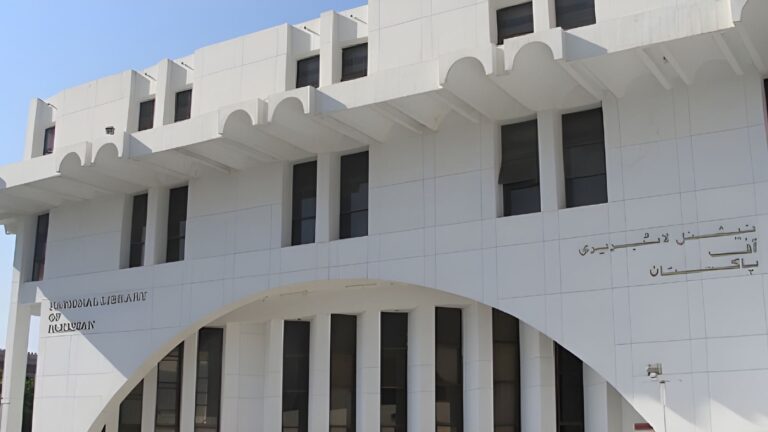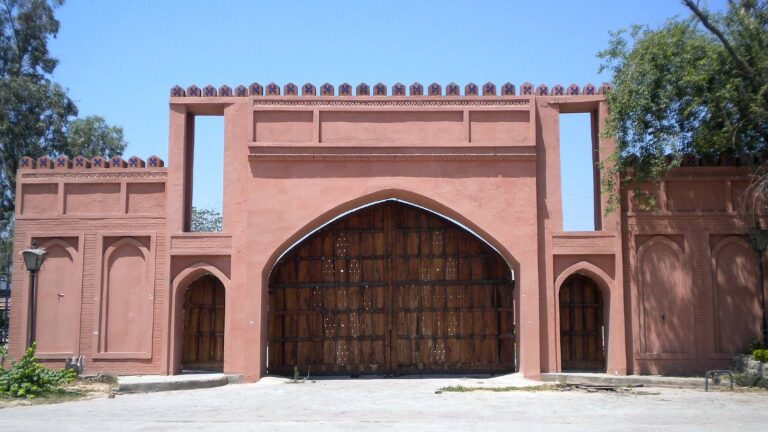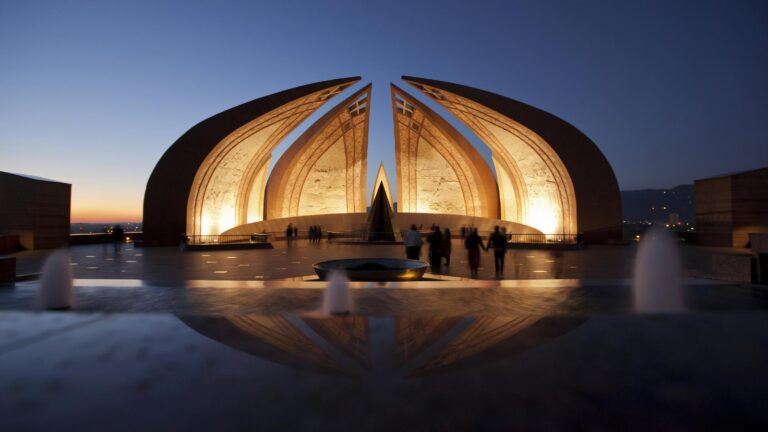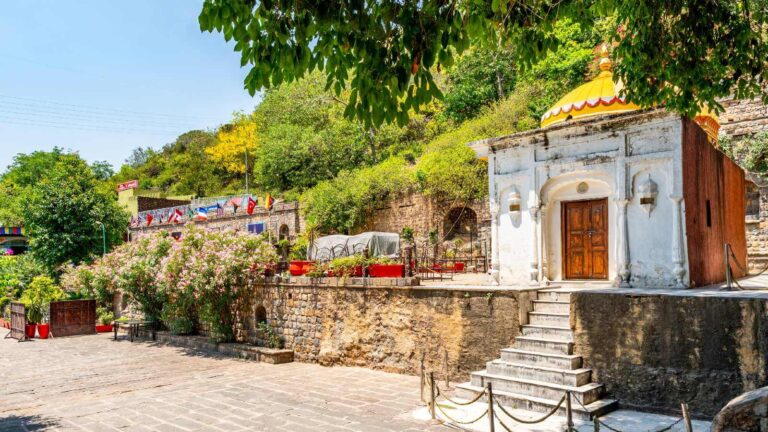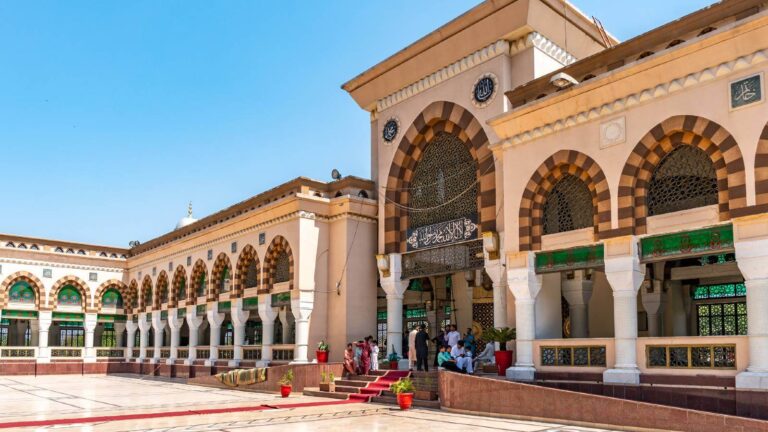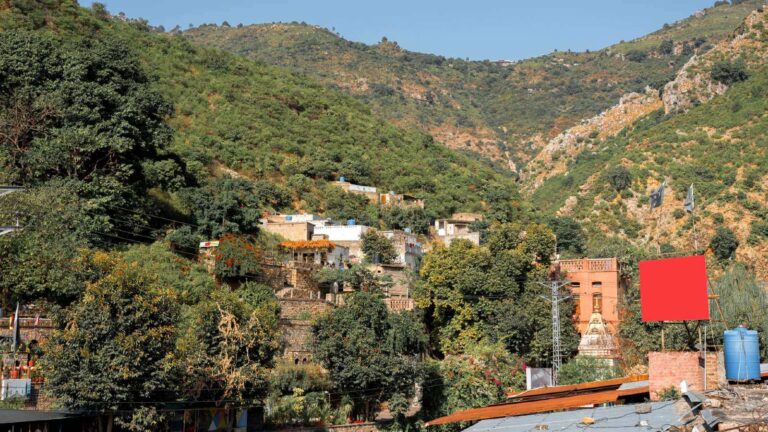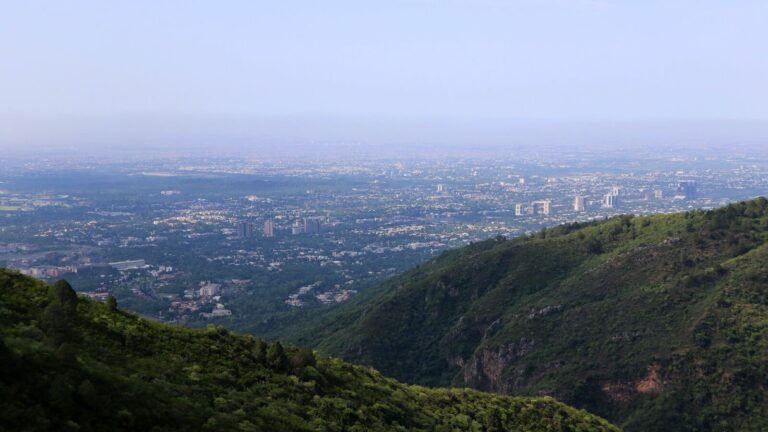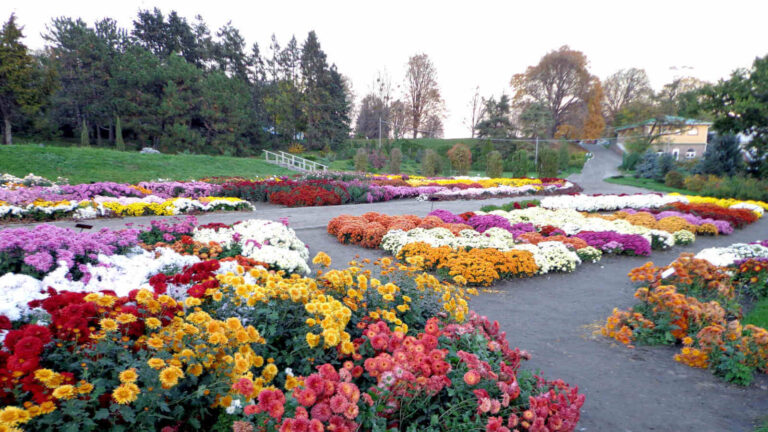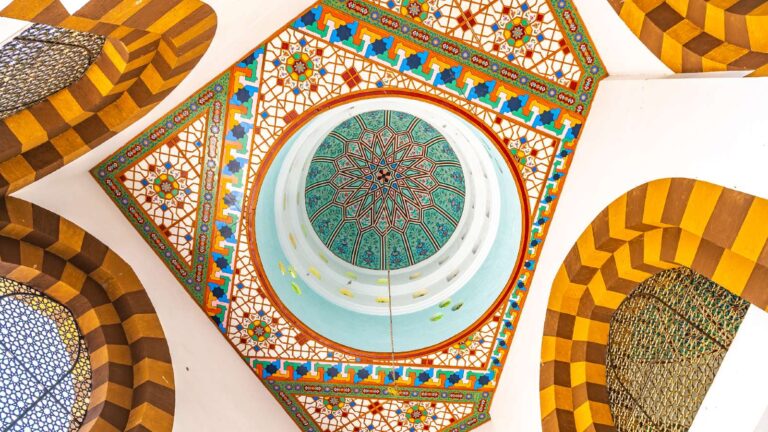Getting There
Reaching the Shah Faisal Mosque in Islamabad, Pakistan, is convenient from various points within the country through multiple transportation options.
By driving, well-connected roads lead to the mosque’s location. From central Islamabad, take Shaharah-e-Islamabad road, which provides direct access to the mosque premises. This option offers flexibility and ease of access.
Public buses and taxis are available throughout Islamabad, and some routes pass by or are near the mosque. This makes public transportation a feasible choice for those without personal vehicles.
Though Islamabad’s train network is limited, consider reaching the nearby Rawalpindi Railway Station. From there, you can take a taxi or a local bus to reach the mosque.
Taxis and rideshare services are readily accessible, providing personalized transportation to the mosque’s entrance.
Transportation choice depends on factors such as convenience, budget, and group size. Regardless of the mode chosen, the Shah Faisal Mosque’s architectural splendor and spiritual significance await travelers seeking cultural exploration and a peaceful retreat within the country.
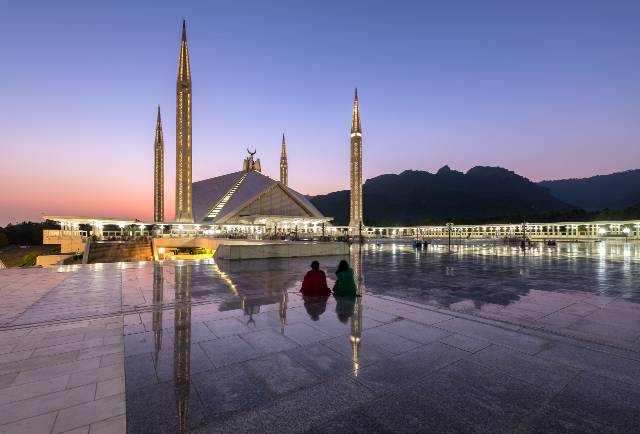
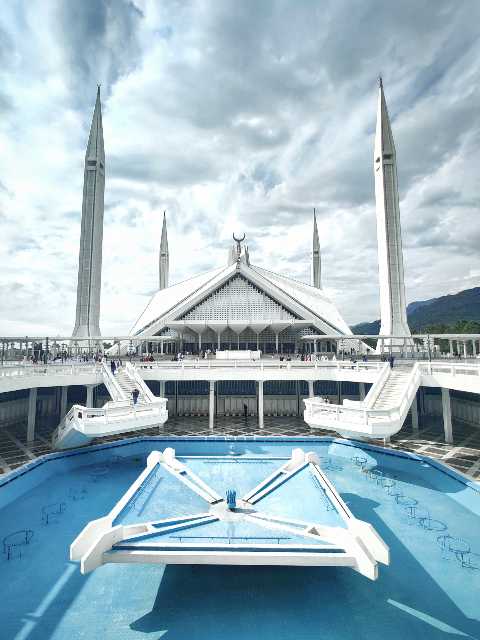
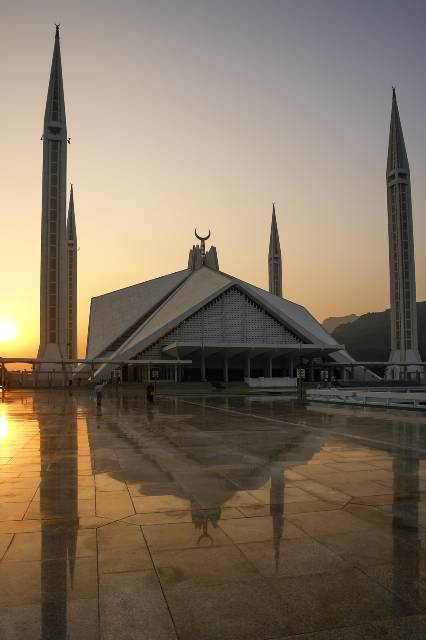
What to Expect
Visitors to the Shah Faisal Mosque can expect an awe-inspiring encounter with architectural magnificence and spiritual serenity. The mosque’s vast white marble structure stands as a testament to Islamic artistry, surrounded by well-maintained gardens and reflective pools.
Inside, travelers can partake in prayers or sit in quiet contemplation within the mosque’s spacious prayer hall, adorned with intricate designs. The mosque’s modern and minimalistic aesthetic provides a tranquil atmosphere conducive to inner reflection.
Photography enthusiasts will find the mosque’s grandeur and symmetry captivating, especially against the backdrop of the Margalla Hills.
The mosque’s open-door policy invites travelers of all faiths, offering a respectful insight into Islamic culture and traditions. Whether it’s witnessing daily prayers or admiring the architecture, visitors can immerse themselves in an atmosphere of spiritual unity.
Guided tours are often available, providing historical and architectural insights, enhancing the visitor’s understanding of this monumental place of worship.
The mosque’s serene surroundings and breathtaking architecture make it a hub for both spiritual solace and cultural appreciation. It is an ideal destination for those interested in architectural marvels, interfaith exploration, or seeking a moment of tranquility amid the bustling city of Islamabad.
History
The Shah Faisal Mosque’s history is deeply intertwined with Pakistan’s journey towards identity, unity, and modernity. Commissioned by King Faisal of Saudi Arabia and named in his honor, the mosque was designed by Turkish architect Vedat Dalokay. Construction began in the 1970s, a period when Islamabad was being developed as Pakistan’s new capital.
The mosque’s design reflects an amalgamation of contemporary and traditional Islamic architectural elements. Its minimalistic approach and enormous size pay tribute to the faith’s simplicity and grandeur.
The mosque was completed in 1986 and swiftly gained global recognition for its monumental size, accommodating over 100,000 worshippers. Its modernist architecture contrasts with the historic designs of other notable mosques, yet the symbolism of Islamic unity remains intact.
The mosque’s construction was largely funded by King Faisal, which forged a strong connection between Pakistan and Saudi Arabia, cementing a longstanding diplomatic and economic partnership.
Beyond its religious significance, the mosque has become an emblem of Pakistan’s modern architectural prowess. Its design blends seamlessly with Islamabad’s urban landscape while making a profound cultural statement.
Today, the Shah Faisal Mosque is not only a place of worship but also a prominent cultural landmark. It has hosted international dignitaries, public gatherings, and events of national importance, reinforcing its role as a symbol of unity and progress.
The mosque’s history encapsulates Pakistan’s aspirations for progress, cultural preservation, and interfaith understanding. It stands as an architectural marvel and an enduring testament to the nation’s dedication to preserving its heritage while embracing modernity.
Facilities
- Prayer Facilities: Spacious and beautifully designed prayer hall for worshippers.
- Reflective Pools: Serene pools offering a peaceful atmosphere for contemplation.
- Gardens: Well-kept surrounding gardens providing tranquil spaces for relaxation.
- Visitor Center: Information hub offering insights into the mosque’s history, architecture, and significance.
- Guided Tours: Occasionally available, providing detailed information about the mosque.
- Public Toilets: Restroom facilities for visitors’ convenience.
- Wheelchair Accessibility: Ramp access and facilities for visitors with mobility challenges.
- Interfaith Outreach: Open-door policy welcoming visitors of all faiths for respectful exploration.
- Photography: Allowed in designated areas for capturing the mosque’s beauty.
- Tourism Information: Multilingual guides and materials offering insights for international tourists.
- Public Transportation: Accessible by public buses, with some routes passing near the mosque.
- Taxis/Rideshare: Taxis and rideshare services available for transportation.
- Closest Accommodation: Range of accommodations in Islamabad, catering to different preferences and budgets.
- Wi-Fi: Limited to no Wi-Fi availability to encourage a peaceful environment.
- Cafeteria/Kiosk: Small cafes or kiosks offering light refreshments.
- Souvenir Shops: Shops selling Islamic-themed items, books, and mementos.
- Safety Measures: Signage, security personnel, and regulations to ensure a safe visit.
- Parking: Ample parking facilities for private vehicles.
- Reflective Environment: Designed to encourage personal reflection and peaceful moments.

